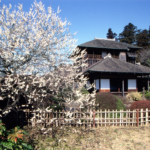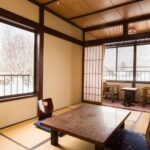Surviving in Japan: Very Basic Japanese Phrases Every Traveller Should Know

Knowing some basic Japanese can often smooth out interactions with local folks. Even if you’re not having in-depth daily conversations, the ability to ask directions, make small inquiries, or place orders at a restaurant can enrich your experience.
Japan’s culture is closely intertwined with its language. By learning some basic Japanese, you can gain a deeper understanding of the country’s traditions, customs, and etiquette. This also signals respect for local people, helping you as a foreigner feel more welcomed and accepted.
Being versed in basic Japanese can instill confidence when navigating activities on your own. Whether it’s utilizing the local transportation system, understanding directions, or independently shopping in stores and restaurants, you can rely on yourself more.
Also, in case of emergencies or difficult situations, understanding some Japanese can be a life-saver. You’ll be able to ask for help or explain your situation, ensuring your safety and peace of mind.
Even a rudimentary understanding of Japanese can lead to wonderful experiences with locals, and a taste of living like a local. Whether participating in local festivals or events, or exploring less touristy areas, you can seize more opportunities and gain a deeper understanding of Japan.
See also: Perfect Your Pronunciation: Basic Japanese Phrases for Daily Conversation
Very Basic Japanese phrases for travellers
Very Basic Phrases
| English | written Japanese | pronunciation |
| Yes. | はい。 | hai |
| No. | いいえ。 | īe |
| Thank you. | ありがとう。 | Arigatō. |
| Thank you very much. | ありがとうございます。 | Arigatō gozaimas. |
| Thank you very much. | どうもありがとう。 | Dōmo arigatō. |
| No, thank you. | 結構です。 | Kekkō des. |
| That’s all right. | どういたしまして。 | Dō itashimashite. |
| You are welcome. | どういたしまして。 | douitashimashite. |
| Please (asking). | お願いします。 | Onegai shimas. |
| Please (to offer). | どうぞ | Dōzо. |
| How do you do? /Pleased to meet you. | はじめまして。 | Hajime mashite |
| Nice to meet you./Pleasure to meet you. | お会いできてうれしいです。 | Oai dekite ureshii des. |
| How do you do? | よろしくお願いします。 | Yoroshiku onegai shimas. |
| How are you? | お元気ですか? | Ogenki des ka? |
| I’m fine. (informal) | 元気です | Genki desu. |
| Very well, thanks. And you? | 元気です。ありがとうござい ます。あなたはいかがですか? | Genki desu. Arigatō gozaimasu. Anata wa ikaga desuka? |
| I’m fine, thanks. | おかげさまで | Okagesama de. |
| Good-bye. | さよなら/さようなら | Sayonara./ Sayōnara. |
| Goodbye (informal) | では又/じゃあね | Dewa mata./ Jāne. |
| Keep well (casual). | お元気で。 | Ogenki de. |
| See you later. | では又後程。 | Dewa mata nochihodo. |
| Take care. | 気をつけて。 | Ki wo tsukete. |
| The same to you. | そちらも。 | Sochira mo. |
| I’m sorry | ごめんなさい | Gomen nasai. |
| Justa minute, please | ちょっと待ってください | Chotto matte kudasai. |
| Cheers! (toast) | 乾杯! | Kampai! |
| Thanks for the meal. | ごちそうさまでした。 | Gochisousama deshita. |
| Excuse me. (May I get past?) | すみません。 | Sumimasen. |
| I am so sorry. | 本当にすみません。 | Hontō ni sumimasen. |
| I am sorry to hear that. | 残念でしたね。 | Zannen deshita ne. |
| That’s a shame. | 残念です。 | Zannen desu. |
| I’m fine. | 私は元気です。 | Watashi wa genki desu. |
| I’m ill. | 私は病気です。 | Watashi wa byōki desu. |
| Sorry! | ごめんなさい。 | Gomen-nasai. |
| Sorry. | すみません。 | Sumimasen. |
| Just a moment. | ちよっと待って下さい。 | Chotto matte kudasai. |
| After you. | どうぞお先に。 | Dōzo osaki ni. |
| Really? | 本当に?/本当ですか? | Houtō ni?/Hontō deska? |
| I can’t. | わたしはできません。 | Watashi wa dekimasen. |
| I understand/I see. | わかります。/なるほど。 | Wakarimasu./ Naruhodo. |
Basic Greetings
| English | written Japanese | pronunciation |
| Hello/Good day | こんにちは。 | Konnichiwa |
| Good morning. | おはようございます | Ohayō gozaimasu. |
| Good afternoon. | こんにちは。 | Konnichiwa. |
| Good evening. | こんばんは。 | Konbanwa. |
| Goodnight (when leaving) | お先に。 | Osaki ni. |
| Goodnight (when going to bed) | おやすみなさい。 | Oyasumi nasai. |
Understand?
| English | written Japanese | pronunciation |
| I understand. | わかりました。 | Wakarimashita. |
| I don’t understand. | わかりません。 | Wakarimasen. |
| I don’t know. | 知りません。/分かりません。 | Shirimasen./ Wakarimasen. |
| I can’t speak Japanese. | 日本語は話せません。 | Nihongo wa hanasemasen. |
| Do you understand? | わかりますか? | Wakarimasuka? |
| Do you Speak English? | 英語を話せますか? | Eigo wo hanasemaska? |
| Please speak slowly. | もう少しゆっくり話してください。 | Mō skoshi yukkuri hanashite kudasai. |
How to call…?
| English | written Japanese | pronunciation |
| I | 私 | watashi |
| I (men only) | 僕/俺 | boku/ore |
| Mr. …/Mrs … /MS. … | ・・・さん | …san |
| you | あなた | anata |
| you (familiar) | 君 | kimi |
| you (plural) | あなたたち | anata-tachi |
| we | 私たち | watashi-tachi |
| (my) wife | 妻/家内 | tsuma/kanai |
| (your) wife | 奥さん | oku-san |
| (my) husband | 夫/主人 | otto/shujin |
| he | 彼 | kare |
| (your) husband | ご主人 | goshujin |
| they (male) | 彼ら | karera |
| (my) son | 息子 | musko |
| she | 彼女 | kanojo |
| (your) son | 息子さん | musko-san |
| they (female) | 彼女たち | kanojo-tachi |
| (my) daughter | 娘 | musme |
| they (objects) | それら | sorera |
| (your) daughter | 娘さん | musme-san |
| businessman/woman | ビジネスパーソン | bijines pāson |
| child | 子供 | kodomo |
| children | 子供たち | kodomo-tachi |
| man | 男性 | dansei |
| student | 学生 | gakusei |
| woman | 女性 | josei |
Introducing
| English | written Japanese | pronunciation |
| My name is … | 私の名前は…です。 | Watashino namaewa … desu. |
| I work for a company. | 私は会社員です。 | Watashi wa kaisyain desu. |
| I’m a student. | 私は学生です。 | Watashi wa gakusei desu. |
| I’m a teacher. | 私は教師です。 | Watashi wa kyōshi desu. |
| I’m a teacher. | 私は教師です。 | |
| I’m a tourist. | 私は観光客です。 | Watashi wa kankōkyaku desu. |
| I’m American. | 私はアメリカ人です。 | Watashi wa Amerika-jin desu. |
| I’m Australian. | 私はオーストラリア人です。 | Watashi wa Ōstoraria-jin desu. |
| I’m British. | 私はイギリス人です。 | Watashi wa igirisu-jin desu. |
| I’m Canadian. | 私はカナダ人です。 | Watashi wa kanada-jin desu. |
| What’s your job? | あなたの仕事は何ですか? | Anata no shigoto ha nan deska? |
| What’s your name? | あなたの名前は何ですか? | Anatano namae wa nan deska? |
| Where are you from? | お国はどちらですか? | O-kuni wa dochira deska? |
| America | アメリカ | Amerika |
| Australia | オーストラリア | Ōstoraria |
| Britain | 英国/イギリス | Eikoku/lgirisu |
| Canada | カナダ | Kanada |
| France | フランス | Furansu |
| Germany | ドイツ | Doitsu |
| Ireland | アイルランド | Airurando |
| Japan | 日本 | Nihon |
| New Zealand | ニュージーランド | Nyū Jīando |
| Outside Japan | 外国 | Gaikoku |
| This is Mr./Mrs./ Miss … | こちらは…さんです。 | Kochira wa … san desu. |
| Are you Mr./Ms Yamada? | 山田さんですか? | Yamada-san desu ka? |
| Here is my business card. | 私の名刺です。 | Watashi no meishi desu. |
| I like … | 私は・・・が好きです。 | Watashi wa … ga sukidesu. |
| Do you like…? | ・・・は好きですか? | …wa suki desuka? |
| I don’t like … | 私は…が好きではありません。 | Watashi wa … ga suki dewa arimasen. |
| How old are you? | おいくつですか? | Oikutsu deska? |
| I am … years old. | ・・・歳です。 | … sai desu. |
| Are you married? | 結婚していますか ? | Kekkon shite imaska? |
| I am married. | 結婚しています。 | Kekkon shite imasu. |
| I am not married. | 結婚していません。 | Kekkon shite imasen. |
| I am single. | 独身です。 | Watashi wa dokusin desu. |
Basic words and phrases
| English | written Japanese | pronunciation |
| What is that? | あれは何ですか? | Are wa nan deska? |
| What is this? | これは何 ですか? | Kore wa nan deska? |
| these | これら | korera |
| this | これ | kore |
| this one | これ | kore |
| those | それら | sorera |
| here | ここ | koko |
| that (far away) | あれ | are |
| that (nearby) | それ | sore |
| that one (near neither of you) | あれ | are |
| that one (near the other person) | それ | sore |
| there | あそこ | asoko |
| Here it is. | ここにあります。 | Koko ni arimasu. |
| Here they are. | ここにあります。 | Koko ni arimasu. |
| Here you are. | どうぞ。 | Dōzo. |
| It is … | …です。 | … desu. |
| It isn’t… | ・・・ではありません。 | … dewa arimasen. |
| ls it…? | …ですか? | … desu ka? |
| ls there/Are there … | ・・・がありますか。 | … ga arimasu ka? |
| There is/There are … | ・・・があります。 | … ga arimasu. |
| There isn’t/aren’t any. | ・・・はありません。 | … wa arimasen. |
| There isn’t/aren’t… | ・・・はありません。 | … wa arimasen. |
| There it is. | あそこにあります。 | Asoko ni arimasu. |
| There they are. | あそこにあります。 | Asoko ni arimasu. |







